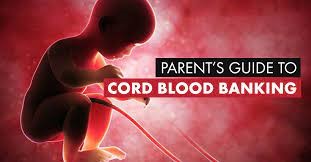What is Cord Blood and Why is it Important?
Cord blood is the blood that remains in the placenta and umbilical cord after a baby is born. It is a rich source of stem cells, which are cells that can develop into various types of cells in the body and have the potential to regenerate and repair damaged tissue.
Cord blood has been used in medical treatments for over 25 years and has helped to save the lives of thousands of people around the world. It is particularly useful in the treatment of blood disorders such as leukemia and lymphoma, as well as certain inherited immune system and metabolic disorders.
Stem cells from cord blood hav
e several advantages over other sources of stem cells, such as bone marrow. They are more readily available, as the collection process is less invasive and can be done shortly after birth. They are also less likely to be rejected by the recipient's immune system, making them a good option for people who may have difficulty finding a suitable bone marrow donor.
There are two main options for storing cord blood: private cord blood banking and public cord blood banking. Private cord blood banking involves storing the cord blood for the exclusive use of the family, while public cord blood banking involves making the cord blood available for use by anyone in need of a stem cell transplant.
Private cord blood banking can be a good option for families who have a history of certain medical conditions that may be treated with stem cells from cord blood in the future. However, it is important to note that the chances of a family member needing to use their own stored cord blood are relatively low. According to the American Academy of Pediatrics, the likelihood of a child needing their own stored cord blood is about 1 in 2,700.
Public cord blood banking involves donating the cord blood to a public cord blood bank, where it is made available for use by anyone in need of a stem cell transplant. This can be a good option for families who do not have a specific medical reason for storing their cord blood and who want to contribute to the greater good.
Cord blood banking is a form of biobanking, which is the collection and storage of biological samples for future use in research or medical treatment. It is important to carefully consider the options and weigh the potential benefits and risks before deciding whether to bank your baby's cord blood.
If you do choose to bank your baby's cord blood, it is important to do so with a reputable company that follows best practices for collecting, processing, and storing the cord blood. Viacord is a leading provider of cord blood banking services, with over 25 years of experience in the field.
In conclusion, cord blood is a valuable resource that has the potential to save lives and improve the quality of life for people with certain medical conditions. If you are considering cord blood banking for your family, it is important to do your research and make an informed decision that is right for you. Whether you choose private cord blood banking or public cord blood banking, the decision to preserve this valuable resource can have a lasting impact on the health of your family and the greater community.



Comments
Post a Comment